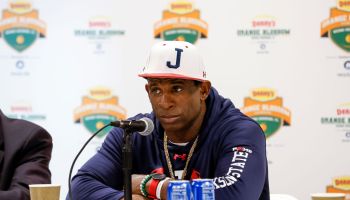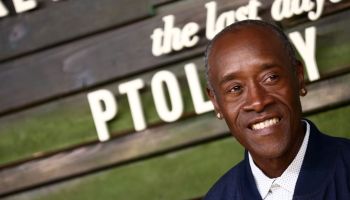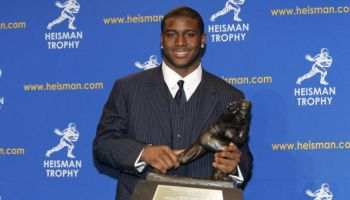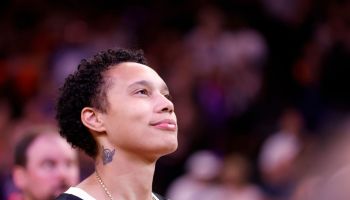ESPN’s hit docuseries chronicling Michael Jordan‘s final season as a member of the Chicago Bulls may have ended Sunday night after a 5-week run. But for many people in my generation, “The Last Dance” was also the beginning of an official introduction to the human behind the legendary, seemingly immortal superstar.
My father lived in Chicago during the peak of the Bulls’ run, and from his retellings of the team, I always believed that Michael Jordan was an unstoppable force on an unstoppable team. However, while the Bulls were clearly dominant, they also had plenty to overcome during their dynastic championship runs throughout the 1990’s.
Jordan specifically was always presented to me as an untouchable and unfazed basketball player and someone who would succeed no matter the odds. His stronghold on NBA history has made us forget the personal and professional struggles that he experienced. After all, he went 6-0 in the NBA finals, has the highest career scoring average in NBA history, had the ridiculous dunks and wore the iconic shoes. I can honestly say that I took Jordan for granted. His greatness is obvious and impossible to ignore, but “The Last Dance” showed me, a rising senior at Morehouse College, that it wasn’t a full-on conclusion.
Well, not completely. After all, Jordan was the most athletic player the NBA had ever seen at the time. Plays like “the shot” over Craig Ehlo in 1989, the game-winner against the Utah Jazz in 1998, or even the world’s most unnecessary layup against the Lakers in 1991 did not compare to the other spectacular plays that Jordan regularly made. The montages sprinkled throughout the docuseries highlight Jordan’s dominance over every player in the NBA.
Watching Jordan was unlike any basketball player that I have ever seen; even now with more freakish athletes in the NBA than ever before, none of them looks as smooth and effortless as Jordan did. From reigning MVP Giannis Antentemkoumpo to LeBron James, the league is far bigger and faster than it was in the ’90s. Still, no one has as much body control and the same kind of glide that his “Airness” possessed.
Despite all of his athleticism and dominance, Jordan initially had struggles when the playoffs came around and teams were able to zone in on him. Episode 3 illustrates this as Jordan continually fell short against the Detroit Pistons. In order to rise to the occasion, Jordan showed off his forgotten genius when he allowed coach Phil Jackson to change the Bulls’ offense in order to better facilitate and enable a winning team. That included Jordan’s tireless work ethic as he looked to build muscle to better handle the rough and tumble nature of the Pistons in the playoffs.
The ball was taken out of Jordan’s hands as Jackson looked to have better ball movement and involve everyone on the team. There was a new Jordan who went from being the best isolation scorer the game had ever seen to the most important cog in a well-oiled machine. He was still putting up insane numbers, but the Bulls got better as Jordan had to start relying more on his teammates.
“Relying” may actually be too strong a word, as Jordan made it a point to drag all of his teammates to the finish line — and berate them if they weren’t carrying their own weight. In today’s era, opposing players dap each other up before games and the NBA puts an emphasis on the family atmosphere that surrounds the league. “The Last Dance” showed a version of the league that no longer exists — one where Jordan could punch teammate Steve Kerr in the eye and constantly put-down another, Scott Burrell, all without being punished. Everyone on the team had to be mentally prepared or else Jordan would be furious. No one had it easy while Jordan was around, not in practice or anywhere else.
While it led in part to one of the most successful careers in NBA history, it was also something that Jordan was emotional about at the end of Episode 7, showing there was a clear struggle between how Jordan wanted to be represented and how he wanted his team to be.
“That’s the way I played the game,” Jordan said with tears in his eyes during a scene in the docuseries. “If you don’t want to play that way, don’t play that way.”
The frustration Jordan had and still has is about not knowing whether people looking back on Jordan were going to be able to understand why he was the way he was. That drive and killer instinct made him great, but he was still overwhelmingly a man; a man who wanted to be loved and a man who most importantly wanted to be understood.
Before the docuseries ever even aired Jordan openly said that he feared that he would come off looking like a jerk. The concern of public backlash is something that defined Jordan’s career in a really apparent way, and is one of the few things that has always been a criticism that Jordan had to live with. It usually manifested itself into silence on key political and social issues.
Episode 5, in particular, showed how his own mother asked him to make a public stand against the racist Jesse Helms, a Republican who was running for governor in Jordan’s home state of North Carolina in 1990. The fear that Jordan had was economically reasonable — he needed to be an appealing figure in order to make as much money as he ultimately did. There is even a quote: “Republicans buy sneakers too.”
It is this fear of public scrutiny that made Jordan hold everything close to his chest and is also what separates him from the stars of today more than anything he accomplished on the court. LeBron, Dwyane Wade, Chris Paul and Carmelo Anthony all spoke up against police brutality; the Miami Heat wore hoodies in honor of Trayvon Martin; even the late, great Kobe Bryant said that if he would have considered kneeling during the national anthem.
Where Jordan wanted to protect his image from associating with politics, today’s superstars have a desire to be defined by their beliefs.
Jordan’s consumption with his public image didn’t just have political implications and actually defined his playing career. When Sports Illustrated published a story about Jordan’s struggles as a baseball player, he ceased to do interviews with the magazine. Even in basketball where his greatness was unquestioned, Jordan used slights by the media, whether perceived or actual, as motivation to show up his opponents.
This idea of being consumed by media perception is not singular to Jordan’s generation, as plenty of today’s stars — such as Kevin Durant — have also shown signs of this sort of insecurity that seems oxymoronic for someone presented as a god-like figure with an impeccable ego. Instead, there is a feeling of paranoia that surrounds Jordan, and fear that all that he worked for would be taken away. While some see this as a weakness that allows Jordan to be opened up to scrutinization — again, like Durant is — I find it to be humanizing and actually his most endearing quality.
Jordan’s motivations were endless, from sportswriters saying Dan Majerle could guard him before the ‘93 season to Karl Malone winning the MVP before the ‘97 finals. Even players without ready name recognition — like LaBradford Smith — scoring 37 points in a regular-season game that Jordan didn’t play well in was enough motivation. There was a certain fire driven by his insecurity that was borderline ridiculous to watch; nothing was enough for him and he made sure that he was on top after it was all said and done.
Rooting for greatness puts you in a strange place in today’s basketball culture. Dominating teams like the Golden State Warriors and the Miami Heat were actually hated for theirs. For me, Jordan had the same kind of feeling. But seeing the work it took despite all the physical talent and attributes made for a much more likable figure. His battles and struggles with teams that made a point to target him are proof if the impressive nature of what Jordan accomplished.
The most beloved NBA champions are when one player dismantles entire teams, as was the case when Dirk Nowitzki and the Dallas Mavericks beat the Heat in 2011 or last year when the Warriors’ three-peat got thwarted by Kawhi Leonard and the Toronto Raptors. So, retroactively, it is hard to appreciate that Jordan stopped plenty of great teams. Hall Of Fame players went ringless because of Jordan’s Bulls, and many legacies were unable to recover.
Charles Barkley, Patrick Ewing, Malone, John Stockton, Reggie Miller and many more were unable to climb the mountaintop in part because of Michael Jordan. The singular mindset of not just carrying entire teams to the NBA Finals year after year but also winning them is something that was hard for me to appreciate.
I watched LeBron carry teams far worse than the Bulls to the finish line eight straight times, but actually doing that and then going on to get over the hump to win every single time is something entirely different. “The Last Dance” made me appreciate the league as a whole and the amount of really great teams that were around, but none of that mattered.
The final episode encompassed it perfectly: “Michael was completely present” at crucial times in games. I watched as LeBron would lose focus against teams like the Celtics or Spurs; Durant let the Warriors come back down 3-1; even Kobe Bryant struggled when he was first asked to be the man in Los Angeles. But Jordan never wavered even when exhausted. The grind of being the last team standing for 6 out of 8 years and managing to stay focused is something not witnessed since Bill Russell and the Boston Celtics decades ago.
There were plenty of opportunities for Jordan to lose focus, too — overcoming rumors about gambling addiction, playing after his father died in ‘96, the food poisoning that occurred during the ‘97 finals.
The focus of the docuseries was the mess that was the entire ‘98 season such as Dennis Rodman showing up to WCW Nitro during the ‘98 finals and fleeing to Vegas during that same season, Scottie Pippen holding out on surgery because of his contract negotiations, and Bulls General Manager Jerry Krause wanting to dismantle the entire team before they even had a chance to fail. The mental strength and toughness of Jordan was incredible.
No one from my generation has had to overcome as much as often. The consistency in which Jordan figured out a way to win is a lost art. Battling adversity became a mundane event, and my appreciation for Jordan didn’t take that into account.
Without Jordan, none of my heroes is here. Kobe owned up to it in Episode 5 as the stardom and inspiration propelled the league to new heights. This was the guy that made the league work, and after Jordan there was no stopping the rise in popularity.
It wasn’t just the shoes or the dunks that made the icon, it was the man. It was someone who was imperfect in the most brilliant way, every flaw he had made him the greatest NBA player to ever live. I wish I got to see it live, but thanks to “The Last Dance” I am now able to appreciate Jordan for what he was and most importantly who he is.
SEE ALSO:
















